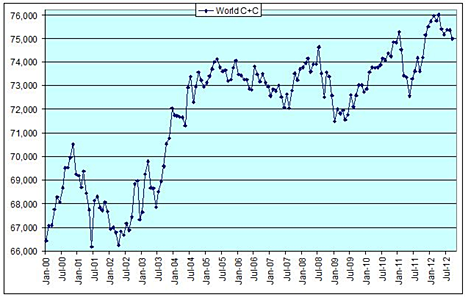
Três anos após o terremoto que deixou
mais de 230 mil mortos no Haiti, o Ministério da Defesa (MD) começa
gradualmente a reduzir a quantidade de militares enviada para integrar a
força de paz naquele país caribenho.
Com a nova troca de contingentes, que deverá ser concluída na primeira semana de junho, o Brasil voltará a contar com um único batalhão na capital Porto Príncipe. Atualmente, 1.910 militares brasileiros atuam no Haiti. Com a extinção do Batalhão de Infantaria da Força de Paz (Brabatt 2), esse efetivo deverá cair para 1.450 militares, o mesmo contingente de antes do terremoto de 2010.
A redução militar naquele país é fruto de entendimento com a Organização das Nações Unidas (ONU). O batalhão único ficará sob o comando do coronel Zenedir da Mota Fontoura, que desembarcará no Haiti com a tropa militar no dia 7 de junho, de acordo com calendário divulgado pelo Estado-Maior Conjunto das Forças Armadas (EMCFA).
Com a nova troca de contingentes, que deverá ser concluída na primeira semana de junho, o Brasil voltará a contar com um único batalhão na capital Porto Príncipe. Atualmente, 1.910 militares brasileiros atuam no Haiti. Com a extinção do Batalhão de Infantaria da Força de Paz (Brabatt 2), esse efetivo deverá cair para 1.450 militares, o mesmo contingente de antes do terremoto de 2010.
A redução militar naquele país é fruto de entendimento com a Organização das Nações Unidas (ONU). O batalhão único ficará sob o comando do coronel Zenedir da Mota Fontoura, que desembarcará no Haiti com a tropa militar no dia 7 de junho, de acordo com calendário divulgado pelo Estado-Maior Conjunto das Forças Armadas (EMCFA).














